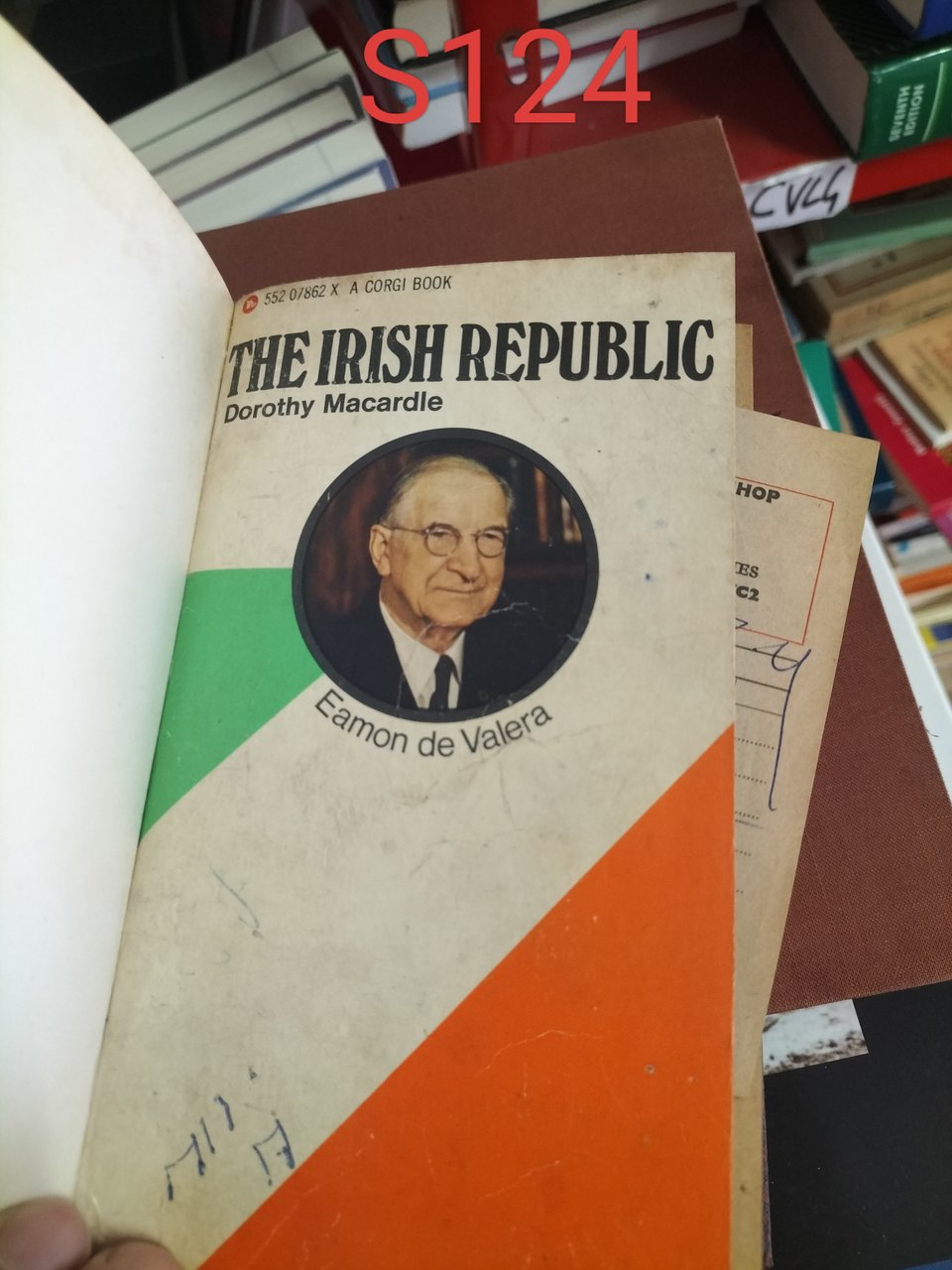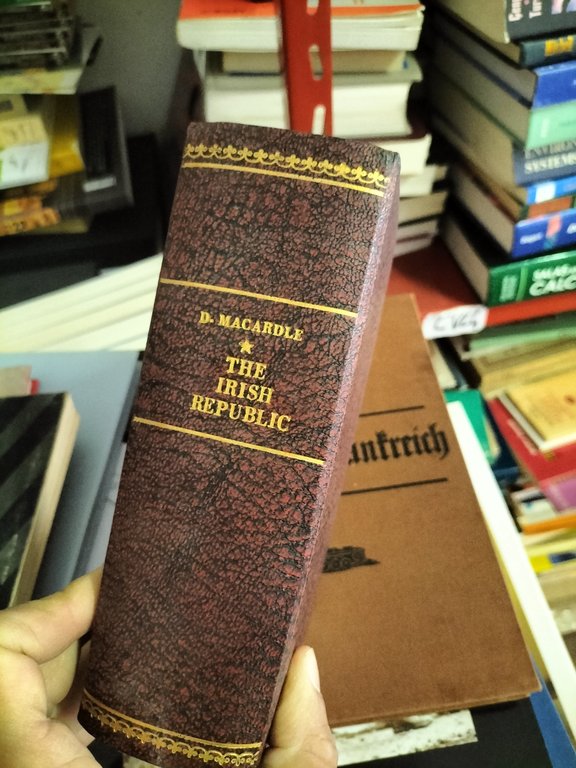

Libros antiguos y modernos
Dorothy Macardle
The Irish Republic
Corgi,
65,00 €
D'Antrassi Scripta Operandi Studio Bibliografico
(Bologna, Italia)
Los gastos de envío correctos se calculan una vez añadida la dirección de envío durante la creación del pedido. El vendedor puede elegir uno o varios métodos de envío: standard, express, economy o in store pick-up.
Condiciones de envío de la Librería:
Para los productos con un precio superior a 300 euros, es posible solicitar un plan de pago a plazos al Maremagnum. El pago puede efectuarse con Carta del Docente, Carta della cultura giovani e del merito, Administración Pública.
Los plazos de entrega se estiman en función de los plazos de envío de la librería y del transportista. En caso de retención aduanera, pueden producirse retrasos en la entrega. Los posibles gastos de aduana corren a cargo del destinatario.
Pulsa para saber másFormas de Pago
- PayPal
- Tarjeta de crédito
- Transferencia Bancaria
-
-
Descubre cómo utilizar
tu Carta del Docente -
Descubre cómo utilizar
tu Carta della cultura giovani e del merito
Detalles
Descripción
Macardle, Dorothy. [Preface by Eamon de Valera]. The Irish A Documented Chronicle of the Anglo-Irish Conflict and the Partitioning of Ireland, with a Detailed Account of the Period 1916-1923. Dublin, Irish Press, 1951. 14.5 cm x 22 cm. 1045 pages. Original Hardcover. Lettering on spine is faded. Cover is frayed and worn. Previous owner's name erased with tippex. Otherwise very good condition with only minor signs of external wear. Dorothy Macardle (2 February 1889 in Dundalk – 23 December 1958 in Drogheda) was an Irish writer, novelist, playwright, and non-academic historian. Her book, The Irish Republic, is one of the more frequently cited narrative accounts of the Irish War of Independence and its aftermath, particularly for its exposition of the anti-treaty viewpoint. Macardle was a member of the Gaelic League and later joined Cumann na mBan in 1917. In 1918 (during the War of Independence), Macardle was arrested by the RIC while teaching at Alexandra; she was eventually dismissed in 1923, towards the latter end of the Irish Civil War, because of her anti-Treatyite sympathies and activities. When the republican movement split in 1921–22 over the Anglo-Irish Treaty, MacArdle sided with Éamon de Valera and the anti-Treaty Irregulars. She was imprisoned by the fledgling Free State government in 1922, during the Civil War, and served time in both Mountjoy and Kilmainham Gaols. MacArdle recounted her Civil War experiences in Nine Stories of Ireland (1924). She also researched her mammoth book The Irish Republic which was first published in 1937. Her political opponents and some modern historians consider her to be a hagiographer for de Valera's political views. Murray considers ..de Valera’s ambitious scheme was eventually implemented by Dorothy MacArdle, his devoted follower and lifelong apologist, whose book The Irish Republic conforms closely to the overall plan outlined by de Valera i..

